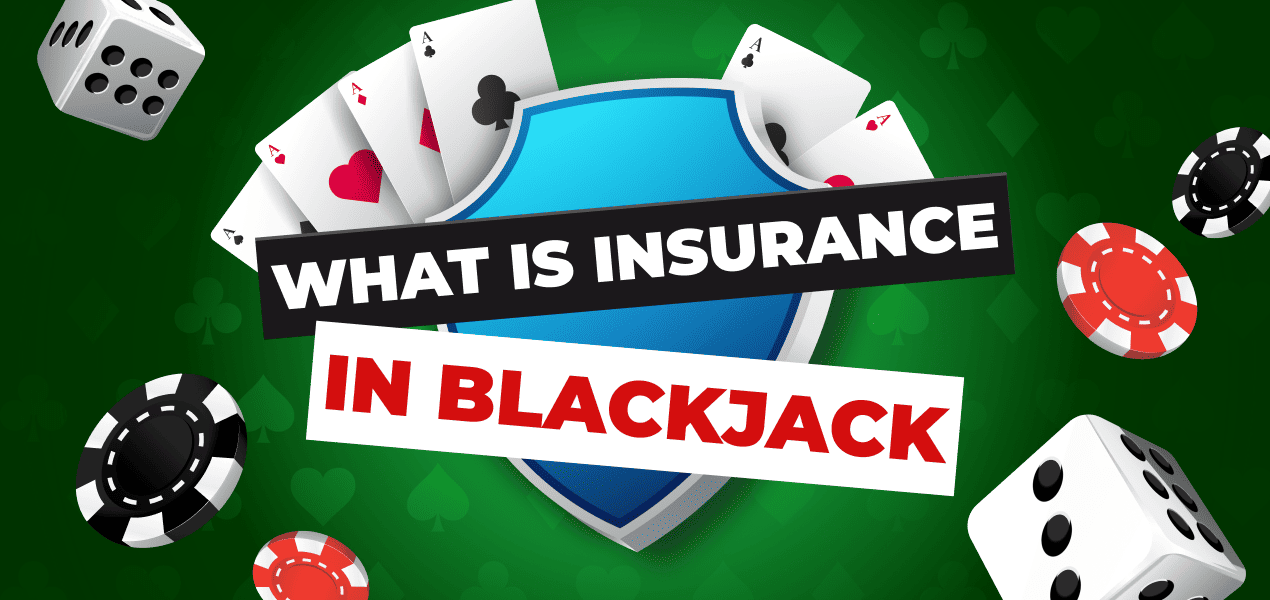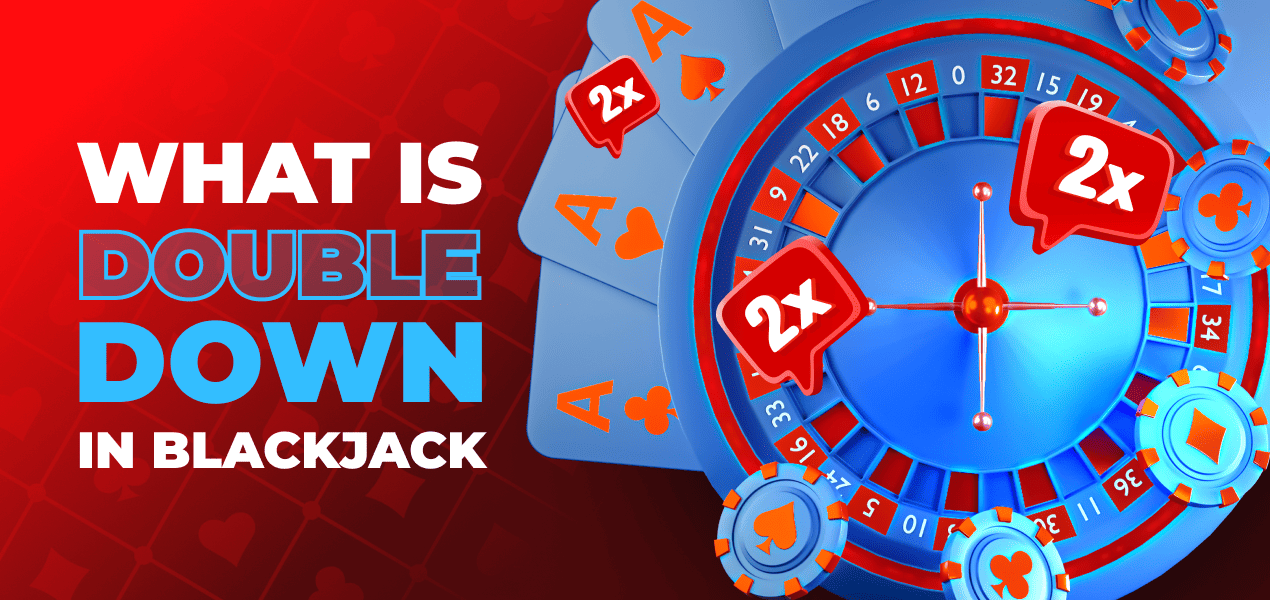
What is Insurance in Blackjack


In blackjack, insurance is a common side bet strategy. When the dealer’s face-up card is an Ace, players frequently use it. If the dealer is expected to get 21, this wager may be helpful. However, because the payout is typically not large, several players steer clear of it.
If you’ve been asking, what does insurance mean in blackjack? This detailed guide is for you! We’ll discuss when to take insurance and the mathematics behind insurance bets. Furthermore, we’ll include top tips for insurance betting and FAQs.
Understanding Blackjack Insurance
Simply put, players can purchase insurance as a side wager after the dealer’s card is an Ace. If the dealer’s following card is 21, the player is protected by this tactic. As a result, they will receive a 2:1 compensation instead of losing out entirely. But before you place your wager, you might want to think about the fact that insurance bets cost half as much.
How Insurance Bets Work
Insurance bets aim to protect the player if they suspect the dealer might have a blackjack. Are you wondering how insurance wagers work? Here’s what to do:
- The player will get an option to take insurance before continuing to play their hands when the dealer’s face-up card is an Ace.
- To get insurance, the player will need to bet on the insurance line on the blackjack table. Note that the insurance bet is usually half the player’s original wager.
- If the dealer scores a blackjack (21 with only two cards), the player with an insurance bet will get a 2:1 payout. This means the player will get twice the original insurance bet amount despite losing the round.
- However, if the dealer doesn’t score a blackjack, the player will lose the insurance bet, and the game will continue. The player can win or lose their original bet, depending on the game outcome.
Insurance Bet Payout and Odd
One of the most popular blackjack side bets most players use is insurance. This strategy protects you from a blackjack if the dealer’s face-up card is an Ace. The insurance bet lowers the house edge and pays out 2:1 if the dealer gets a blackjack.
Note that the odds of winning an insurance bet depend on various factors, like the number of decks used for the game and the number of 10-point cards already dealt. Insurance bets are most effective for players skilled in card counting and basic blackjack strategy. That’s because you must know the right time to make a potentially profitable insurance bet.
Taking an insurance bet in online blackjack can be tricky. Hence, it’s best to play around for a while to understand the blackjack insurance odds before trying out an insurance wager. Also, note that many decks lead to higher odds of potentially losing the insurance stake.
When Insurance is Offered
Players get an insurance card when the dealer’s Ace card is up. The player can wager half their original stake once convinced the dealer has a blackjack. If it turns out that the dealer has a blackjack, the player will get a 2:1 payout on the extra wager, breaking even.
When to Take Insurance in Blackjack
As a new player, taking insurance bets can be a risky move. However, it’s also an excellent way to protect your hands against a potential blackjack from the dealer. To make the right decision, you need to understand why and when to take insurance in blackjack.
When Your Hand Is Low
If your total hand is 16 or lower, taking insurance may be a good strategy. You’re likely to bust if you draw another card. Therefore, insurance is an excellent way to lower the chance of incurring losses.
When the Dealer Face-up Is an Ace
When the dealer’s card facing up is an Ace, they’ll have a higher chance of getting a blackjack. An insurance bet will ensure you break even if the dealer finally gets a blackjack. If the dealer doesn’t get a blackjack, the player will lose the insurance bet. However, the player can still win the hand while the game continues.
Common Mistakes to Avoid
Insurance is usually seen as a way for players to protect themselves against losses. However, you must know the risks involved before using an insurance bet. For context, the insurance bet will cost you money.
As such, you need to prepare yourself in case the dealer doesn’t have blackjack, and you still lose the round. Only use an insurance bet when you’re convinced the dealer has blackjack. That way, you’ll pay extra for a potentially rewarding wager.
Also, insurance bets only protect you against losses on one hand. You’re still exposed to other hands at the table. For instance, if you have a good hand and the dealer has a blackjack, you’ll still lose money with the insurance.
Lastly, when you take insurance, you’re taking on something beyond your control (whether the dealer has a blackjack or not). Therefore, one mistake to avoid is taking insurance as a guaranteed way of getting a return. Instead, see it as a gamble with an undetermined outcome.
Card Counting and Insurance
New blackjack players often wonder about the correlation between insurance and counting cards. Well, a part of the profit expected from counting cards comes from taking insurance bets.
From experience, insurance bets are profitable at high counts. An increase will offer more value to the card counting system.
The Mathematics Behind Insurance Bets
Now that you’ve understood insurance bets and when to take them, here’s additional information on the subject. This section will discuss the mathematics behind insurance bets.
You’ll learn the probability of the dealer landing a blackjack, the house edge, and expected values.
Probability of Dealer Blackjack
Insurance is simply a side bet that players can make when the dealer holds an Ace face-up card. When you make an insurance bet, you’re wagering on the dealer having blackjack. Therefore, the player will receive a 2:1 payout if the dealer has blackjack.
Note that the probability of the dealer getting a blackjack with an Ace card facing up is 31.5%. As such, if you make an insurance bet, your chances of receiving an expected return is -48.8%. You’ll lose 48.7% of the time you take insurance bets and win 31.5%.
From these figures, you can deduce that the house edge is 8.5%, which, in our opinion, is too high. Therefore, unless you’re convinced the dealer has blackjack, we recommend avoiding taking insurance bets.
Finally, an insurance bet can be costly if taken at the wrong time. As such, it’s best to study it so you can only take the side bet when it’s likely to work.
House Edge on Insurance
By offering insurance bets, the casino increases its overall edge. Therefore, players who take insurance are giving the casino more advantage.
Expected Value Analysis
Here’s a detailed analysis of when players can take insurance and their outcomes:
Example 1 (Dealer has blackjack):
- The dealer deals the cards to two players with a €200 wager and gets an Ace. Player one gets a five and a nine, an initial value of 14. With this lower hand, player one can take an insurance bet of €100. When they do, their total hand value goes up to 19, then they stand.
- Player two receives a four and seven hands, bringing the initial value to 11. However, they didn’t take insurance but hit and got a nine, increasing their hand value to 20, and then they stand.
- The dealer might then draw a 10, meaning they have a blackjack.
- Player one has lost the round to the dealer, losing the bet amount. However, they have won their insurance bet, gaining back €200. Therefore, player one didn’t gain or lose their betting funds in that round. Sadly, player two lost to the dealer and didn’t take an insurance bet, so they suffer double losses.
Example 2 (Dealer doesn’t have blackjack):
- Dealer deals two cards to two players who stake €200, while their first card is an Ace.
- Player one receives a six and seven for an initial card value of 13. They decide to take an insurance bet for €100. They hit and get another five, taking their total hand value to 18. Then, they stand.
- Player two receives two sixes for an initial card value of 12. However, they also take an insurance bet for €100. Then, they hit and receive an eight, taking their overall hand to 20 before standing.
- The dealer then draws a four, therefore no blackjack. They hit again and receive another four, with their hand finishing at 19.
- Player one has lost the round, losing their base stake of €200 and an insurance bet of €100. The total amount player one lost in the round is €300. Player two also lost the insurance bet of €100 but won the game round against the dealer, winning back their initial €200.
Expert Quote: Taking insurance is (mathematically speaking) a bad bet.
Insurance vs Even Money
Even money is a special side bet like insurance. Players receive this offer when they have a blackjack, but the dealer’s card shows an Ace. If you take even money, you won’t get a 3:2 if the dealer doesn’t have blackjack. You won’t also receive a push if the dealer has a blackjack. Instead, you’ll score a 1:1 payout on blackjack.
Simply put, when the player has a blackjack, taking even money is like buying insurance for the maximum payout amount.
Which option is better
While even money and insurance might look similar, each serves its purpose. Even money is offered strictly to a player with a blackjack while the dealer’s open card is an Ace. On the other hand, every player can take an insurance bet in a round.
As such, the better option depends on the card you received. If you have a blackjack, you can opt for even money. However, if you don’t, consider taking an insurance bet after weighing your winning potential.
Expert Tips for Insurance Betting
Knowing when to take insurance in blackjack can make or mar your gambling experience. Therefore, you need to employ the best strategies to make the most of the side bet:
- Risk Management: Insurance bets help you manage your risk during a game round when used after careful consideration. However, you must be convinced the dealer has a blackjack after their card facing up is an Ace. If you aren’t sure, it’s best to avoid insuring your wager. On the other hand, if you take insurance but lose the round and the dealer has a blackjack, you’ll get back double the stake you used for the insurance.
- Bankroll Considerations: If used arbitrarily, an insurance bet can potentially deplete your gambling funds speedily. As such, you must know when to take insurance or look the other way. Only take insurance when your hand is low, or the dealer has a blackjack after the face-up card is an Ace.
FAQ
What happens if I take insurance and the dealer has blackjack?
Is blackjack insurance worth it?
Can you take insurance with any hand?
What's the maximum insurance bet allowed?
Does card counting affect insurance decisions?

